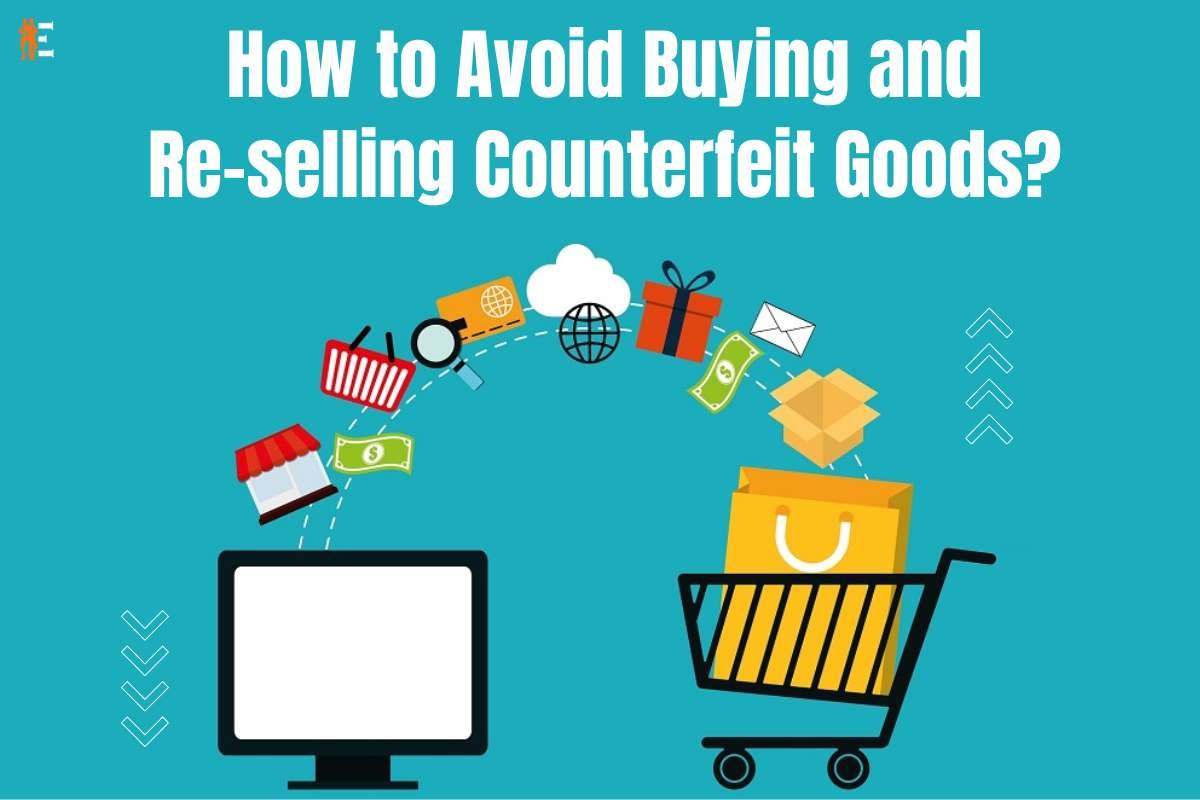Counterfeit goods are a major problem in today’s global economy. From luxury fashion brands to consumer electronics, counterfeiters are finding new ways to deceive consumers and profit from their illegal activities. Counterfeit products not only hurt the original brand’s reputation but also pose serious health and safety risks to consumers. In this article, we will discuss how to avoid buying and re-selling counterfeit goods.
Understanding Counterfeit Goods
Counterfeit goods are products that are made to look like original products but are not. These goods are produced without the permission or authorization of the original brand owner. Counterfeiters make fake products to deceive consumers into thinking that they are buying the genuine article. So everyone should avoid buying and re-selling counterfeit goods.
Counterfeit goods are not only limited to luxury fashion brands; they can be found in almost every product category, from beauty and personal care products to automotive parts and pharmaceuticals. The rise of e-commerce platforms has made it easier for counterfeiters to sell their products to a global audience.
Why Should You Avoid Buying and Re-selling Counterfeit Goods?

Buying counterfeit goods is not only illegal but also harmful to the economy and society. Here are some reasons why you should avoid buying and re-selling counterfeit goods:
It is illegal:
Buying and re-selling counterfeit goods is illegal in most countries. If caught, you could face fines, imprisonment, or both.
It harms the original brand:
Counterfeit goods can damage the reputation and financial health of the original brand. Counterfeiters profit from the hard work of the original brand owners, who invest heavily in research and development, marketing, and innovation.
It is dangerous:
Counterfeit goods are often made with substandard materials and may not meet safety standards. They pose serious health and safety risks to consumers. For example, counterfeit pharmaceuticals may contain harmful substances, and counterfeit car parts may malfunction and cause accidents.
It supports organized crime:
The production and buying and re-selling counterfeit goods are often linked to organized crime. By buying counterfeit goods, you are indirectly supporting criminal activities such as human trafficking, drug trafficking, and money laundering.
How to avoid buying counterfeit goods
Here are some tips to avoid buying and re-selling counterfeit goods:

1. Buy from authorized retailers:
The easiest way to avoid buying counterfeit goods is to buy from authorized retailers. Most brands have a list of authorized retailers on their website. When buying online, make sure to check the seller’s credentials and ratings.
2. Check the packaging and labeling:
Counterfeit goods often have poor quality packaging and labeling. Check for spelling errors, blurry logos, and poor quality printing.
3. Examine the product closely:
If you are buying a luxury fashion item, examine it closely for quality and workmanship. Check for loose threads, uneven stitching, and poor quality materials. If it looks too good to be true, it probably is.
4. Check the price:
Counterfeit goods are often sold at significantly lower prices than the original products. If the price seems too good to be true, it probably is.
5. Beware of online marketplaces:
Online marketplaces such as Amazon, eBay, and Alibaba are hotbeds of counterfeit goods. Be extra careful when buying from these platforms and check the seller’s ratings and reviews.
6. Look for authenticity labels:
Some brands use authenticity labels to distinguish their products from counterfeit ones. Look for labels such as holograms, serial numbers, and RFID tags. However, be aware that some counterfeiters also use fake authenticity labels.
7. Use common sense:
If a deal seems too good to be true, it probably is. Use common sense when buying products and be wary of heavily discounted items.
How to avoid re-selling counterfeit goods?

Re-selling counterfeit goods is not only illegal but also harmful to the economy and society. Here are some tips to avoid re-selling counterfeit goods:
1. Check the source:
Before re-selling a product, make sure to check its authenticity. If you are unsure, do not sell it.
2. Use reputable suppliers:
When sourcing products to sell, use reputable suppliers who have a proven track record of selling genuine products. Avoid suppliers who offer products at significantly lower prices than the market rate.
3. Conduct regular quality checks:
Conduct regular quality checks of your inventory to ensure that you are not selling counterfeit goods. Train your staff to identify counterfeit products and provide them with the necessary tools to do so.
4. Check the authenticity labels:
If the product has an authenticity label, check it carefully. Look for signs of tampering or duplication.
5. Beware of online marketplaces:
Online marketplaces such as Amazon, eBay, and Alibaba are hotbeds of counterfeit goods. Be extra careful when sourcing products from these platforms and check the supplier’s ratings and reviews.
6. Report suspicious activity:
If you suspect that a product is counterfeit, report it to the brand owner or the relevant authorities. By doing so, you are helping to protect consumers and the economy.
BOTTOM LINE
Counterfeit goods are a major problem in today’s global economy. They not only hurt the original brand owners but also pose serious health and safety risks to consumers. To avoid buying and re-selling counterfeit goods, it is important to buy from authorized retailers, check the packaging and labeling, examine the product closely, check the price, beware of online marketplaces, look for authenticity labels, use common sense, check the source, use reputable suppliers, conduct regular quality checks, check the authenticity labels, beware of online marketplaces, and report suspicious activity. By following these tips, you can help to protect yourself, your customers, and the economy from the harms of buying and re-selling counterfeit goods.











